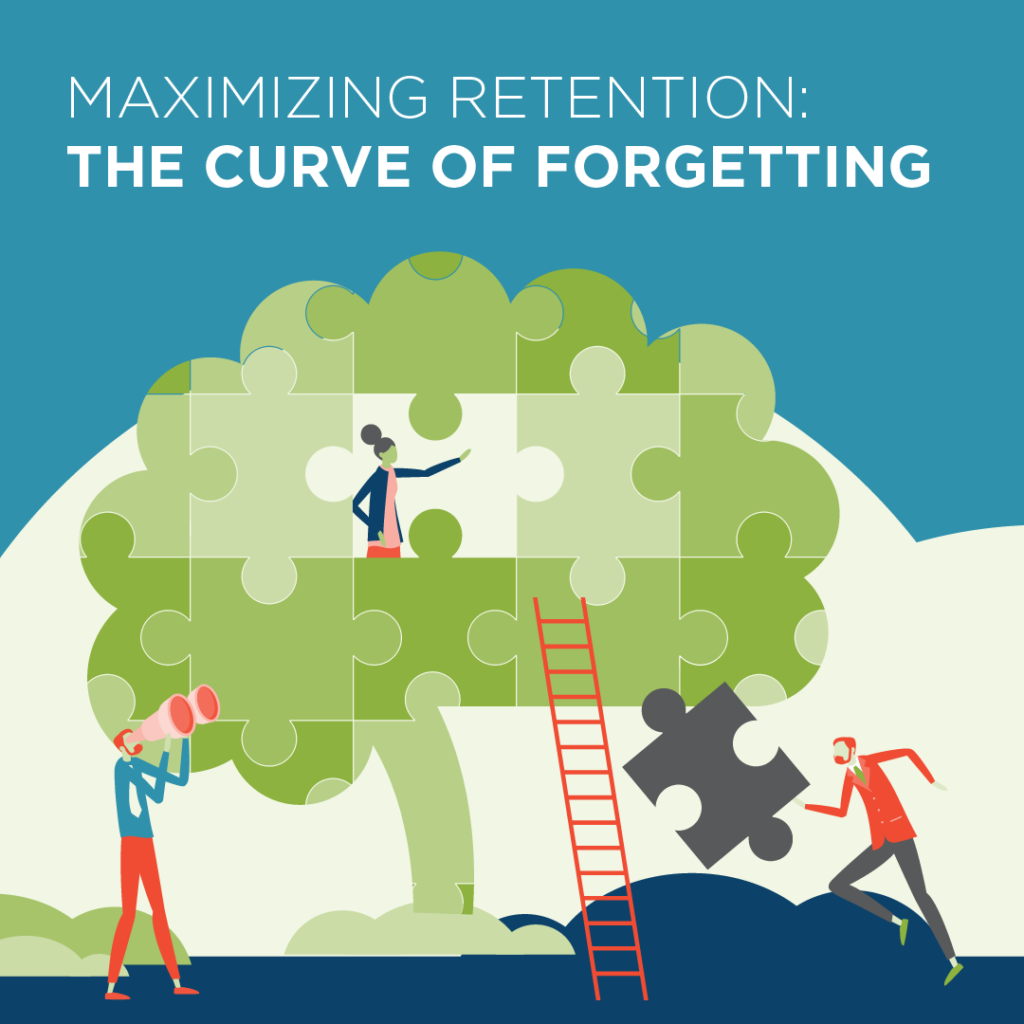
What was the last thing you learned? Do you remember it?
We all struggle with remembering new information – and there’s a theory that explains why. Discovered by psychologist Hermann Ebbinghaus, this theory states that we will begin to forget learned information over time if we do not apply effort to commit it to long-term memory.
Ebbinghaus conducted experiments in the late 19th century, memorizing lists of nonsense syllables and measuring his ability to recall them at various intervals. He discovered that forgetting follows a predictable pattern, with a sharp decline in recall occurring within the first 20 minutes after learning, followed by a more gradual decline over time.
So, as Learning professionals, how do we combat this for things we need people to remember?
There are multiple strategies:
- Active Learning: Use techniques that involve practice, discussion, and application of new knowledge. This can enhance encoding and retrieval processes, making the information more memorable.
- Chunking and Organization: Break down complex information into smaller, manageable chunks and organize them in a meaningful structure. This helps create associations and facilitates easier retrieval.
- Visual Aids and Mnemonics: Use visual aids, such as diagrams or mind maps, to represent information visually. Additionally, mnemonics and memory techniques can assist in remembering complex concepts or sequences.
- Application and Practice: Apply newly acquired knowledge through practical exercises, problem-solving, or real-life scenarios. And the last one, which is too-often overlooked in learning strategies:
- Spaced Repetition: Regularly revisit learned material at strategically spaced intervals to reinforce memory and combat the effects of forgetting. We know that without sustainment mechanisms, learning programs have minimal impact on behavioral change. Learning is NOT one and done!
Forgetting is a natural and necessary process as our brains filter and prioritize information. Without forgetting, our minds would be overwhelmed with an excess of irrelevant or outdated data. But, from a business perspective, when you need people to retain new skills or knowledge, it is important to remember the Ebbinghaus curve of forgetting and to design learning experiences that will help them remember!



